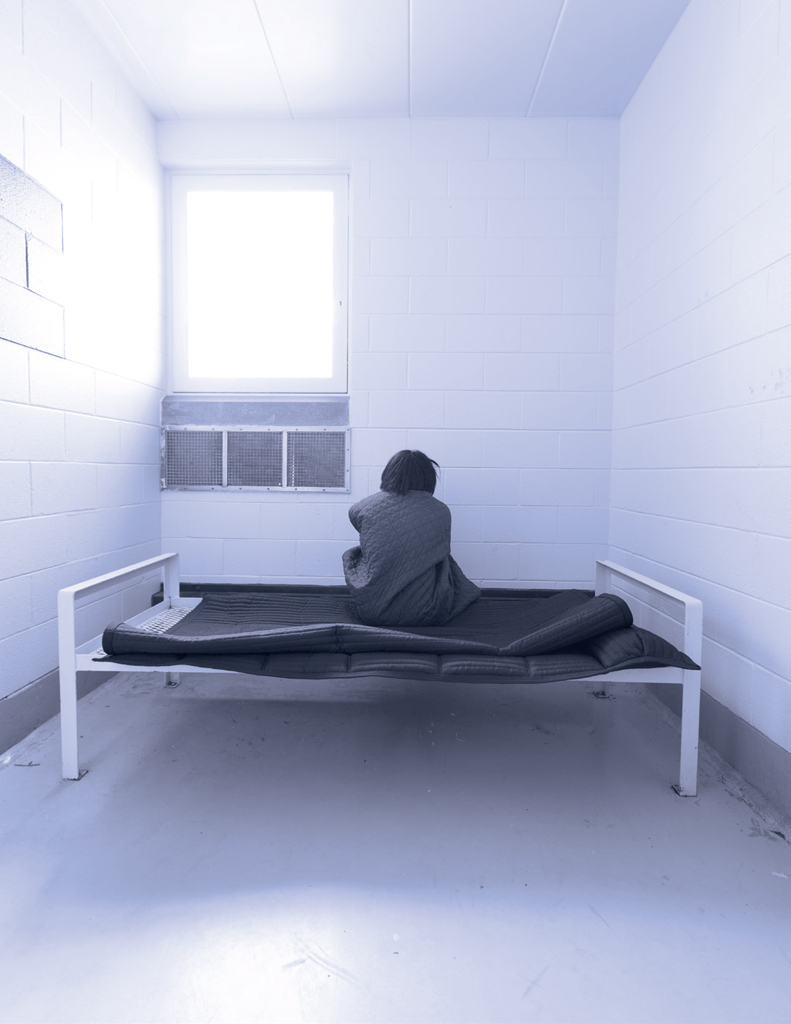The Federal Bureau of Prisons will hire an independent auditor to review the use of solitary confinement in federal prisons, according to a statement released by the bureau. The move could impact thousands of juveniles in adult facilities who are frequently isolated from adult inmates, sometimes on the pretext of protecting their personal safety.
“The National Institute of Corrections will be awarding a contract in the weeks ahead to retain an independent auditor to examine the BOP's use of restrictive housing and also share information from the states and others in the corrections profession,” the federal bureau said in a prepared statement. “We are confident that the audit will yield valuable information to improve our operations, and we thank Senator Durbin for his continued interest in this very important topic.”
Sen. Dick Durbin (D.-Ill.) held a hearing last June to examine the fiscal, human rights and public safety consequences of keeping prisoners in isolation. Durbin responded to the bureau’s announcement by reiterating his hope that the practice would be restricted in federal prisons, and pointed out that the bureau has reduced its segregated population by 25 percent since the hearing last summer.
“The United States holds more prisoners in solitary confinement than any other democratic nation in the world and the dramatic expansion of solitary confinement is a human rights issue we can’t ignore,” Durbin said in his prepared response. “I am confident the Bureau of Prisons will permit a thorough and independent review and look forward to seeing the results when they are made public.”
Charles Samuels, the director of the Federal Bureau of Prisons, testified at the Senate hearing last June that federal prison facilities were operating at 40 percent above their capacity, not including populations housed at private facilities. “Inmate overcrowding may become a catalyst for violence which poses real risks to the lives of staff and inmates,” Samuels told the Senate subcommittee.
The federal prison system incarcerates 215,000 people, and prisoners are isolated far too frequently, said an ACLU response to the federal announcement. “Similar reviews in state prison systems have led to dramatic reductions in solitary confinement, generating millions of dollars in taxpayer savings,” the ACLU said. “We hope and expect that the review announced today will lead the Bureau to significantly curtail its use of this draconian, inhumane, and expensive practice.”
Last June, psychology professor Dr. Craig Haney described to the Senate Subcommittee on the Constitution, Civil Rights and Human Rights a 1970s study that divided mentally sound Stanford University students into two groups: one to role-play prison guards and the other, prisoners in solitary confinement. Over time, Haney found that the mental health of the prisoners deteriorated significantly.
“When I began to study real prisons, examining and evaluating conditions of confinement in prison systems throughout the United States and in a number of foreign countries, I continued to be guided by the early lesson of the Stanford Prison Experiment: prisons are psychologically powerful places, ones that are capable of shaping and transforming the thoughts and actions of the persons who enter them, often in unintended and adverse ways,” Haney testified.
The impact on juveniles of such isolation can be profound.
Minors and LGBT youth serving time in adult facilities are frequently put into solitary confinement for weeks or even months by prison staff in attempts to punish them, maintain federally mandated “sight and sound” separation, or keep them safe, sometimes forcing young people to choose between physical assault and isolation, according to “Growing Up Locked Down,” a recent 147-page report by Human Rights Watch and the American Civil Liberties Union.
Once in solitary confinement, the long periods of isolation, physical inactivity and the lack of human contact can seriously impair adolescents’ physical and mental development, the report said. The practice was against international human rights law and the U.S. Bill of Rights, constituting “cruel, inhuman or degrading treatment,” it emphasized.
“Solitary confinement cannot be squared with the special status of adolescents under U.S. constitutional law regarding crime and punishment. While not unusual, it turns the detention of young people in adult jails and prisons into an experience of unquestionable cruelty,” it found.
Prisons needed to find other ways to manage the challenges of adolescent inmates, the report said.
“Young people can be better managed in specialized facilities, designed to house them, staffed with specially trained personnel, and organized to encourage positive behaviors. Punitive schemes can be reorganized to stress immediate and proportionate interventions and to strictly limit and regulate short-term isolation as a rare exception,” it said.
The federal government does not release data on the number of young people held in solitary confinement in adult jails and prisons, nor do any states, according to the report. “But the available data suggest that the practice is prevalent in particular jurisdictions and occurs nationwide,” the report said.
The solitary confinement of juveniles has become a problem only in the last 30 or so years, since stricter laws have led to the prosecution of more juveniles as adults, advocates said.
